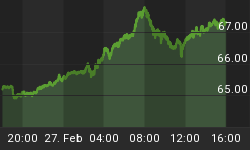Very few people have either the time or patience to sift through the data released by the Treasury Department in the wake of its bond auctions. But the numbers do provide direct evidence of the country's current financial condition that in many ways mirror a financial shell game that typifies our entire economy.
Despite continued deterioration of America's fiscal health, the Treasury is still attracting adequate numbers of buyers of its debt, even with the ultra low coupon rates. Market watchers take these successful auctions as proof that our current monetary and fiscal stimulus efforts are prudent. But who's doing the buying, and what do they do with the bonds after they have been purchased?
Most people are aware that foreign central banks figure very prominently into the mix. They buy for political reasons and to suppress the value of their currencies relative to the dollar. And while we think their rationale is silly, we don't dispute that they will continue to buy as long as they believe the policy serves their own national interests. When that will change is harder to determine. But another very large chunk of Treasuries go to "primary dealers," the very large financial institutions that are designated middle men for Treasury bonds. In a late February auction, these dealers took down 46% of the entire $29 billion issue of seven year bonds. While this is hardly remarkable, it is shocking what happened next.
According to analysis that appeared in Zero Hedge, nearly 53% of those bonds were then sold to the Federal Reserve on March 8, under the rubric of the Fed's quantitative easing plan. While it's certainly hard to determine the profits that were made on this two week trade, it's virtually impossible to imagine that the private banks lost money. What's more, knowing that the Fed was sure to make a bid, the profits were made essentially risk free. It's good to be on the government's short list.
Given that the Treasury is essentially selling its debt to the Fed, in a process that we would call debt monetization, some may wonder why it doesn't just cut out the middle man and sell directly. But the Treasury is prevented by law from doing this, so the private banks provide a vital fig leaf that disguises the underlying activity and makes it appear as if there is legitimate private demand for Treasury debt. But this is just an illusion, and a clumsy one to boot.
For the remainder of this article, please see the latest edition of Euro Pacific's The Global Investor Newsletter
Peter Schiff is CEO of Euro Pacific Capital and host of The Peter Schiff Show















